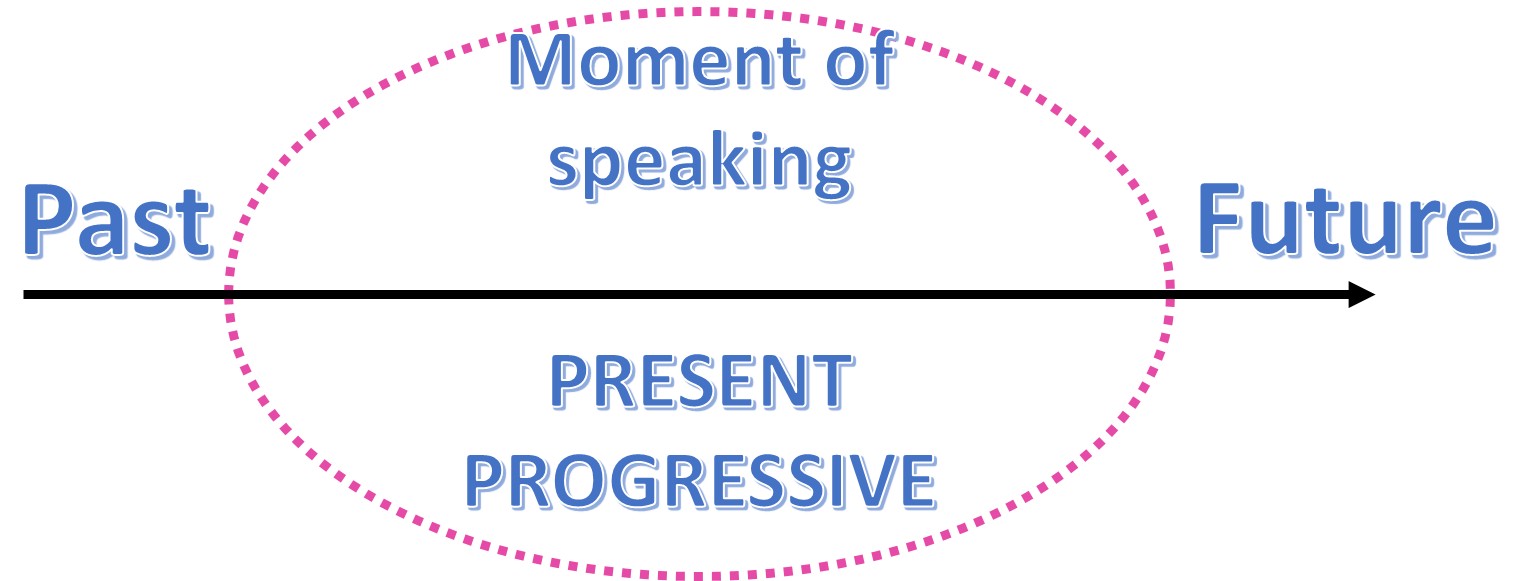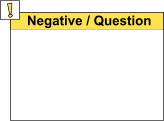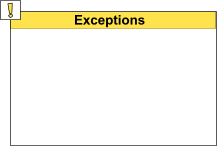Present Progressive
The present progressive puts emphasis on the course or duration of an action.

The present progressive is used for actions going on in the moment of speaking and for actions taking place only for a short period of time. It is also used to express development and actions that are arranged for the near future.
Present progressive is also known as present continuous.
Use a form of to be and the infinite verb plus -ing.
Use:

- am with the personal pronoun I
- is with the personal pronouns he, she or it (or the singular form of nouns)
- are with the personal pronouns you, we, they (or the plural form of nouns)
|
|
affirmative
|
negative
|
question
|
|
I
|
I am playing.
|
I am not playing.
|
Am I playing?
|
|
he, she, it
|
He is playing.
|
He is not playing.
|
Is he playing?
|
|
you, we, they
|
You are playing.
|
You are not playing.
|
Are you playing?
|
Tips on how to form negative sentences and questions

In negative sentences, we put not between the form of be and the verb.
In questions, we simply swop the places of subject and the form of be.
Exceptions in Spelling

A single, silent e at the end of the word is dropped before ing.
example: come - coming
I am coming home. You are coming home. He is coming home.
But: ee at the end of the word is not changed
example: agree - agreeing
The final consonant after a short, stressed vowel is doubled before ing.
example: sit - sitting
I am sitting on the sofa. You are sitting on the sofa. He is sitting on the sofa.
The letter l as final consonant after a vowel is always doubled before ing.
example: travel - travelling
I am travelling around. You are travelling around. He is travelling around.
Mind: This applies only for British English; in American English there is usually only one l.
An ie at the end of a word becomes y before ing.
example: lie - lying
I am lying in bed. You are lying in bed. He is lying in bed.
Short Forms
|
affirmative
|
negative
|
|
I am playing. - I'm playing.
|
I am not playing. - I'm not playing.
|
|
He is playing. - He's playing.
|
He is not playing. - He's not playing. / He isn't playing.
|
|
We are playing. - We'replaying.
|
We are not playing. - We're not playing. /We aren't playing.
|
Use
|
Use
|
Example
|
|
actions taking place at the moment of speaking (now)
|
He is playing football.
|
|
arrangements for the near future
|
I'm going to the theatre tonight.
|
|
actions taking place only for a limited period of time
|
Jim is helping in his brother's firm this week.
|
|
actions taking place around now (but not at the moment of speaking)
|
I'm studying for my exams.
|
|
development, changing situations
|
The population of China is rising very fast.
|
|



